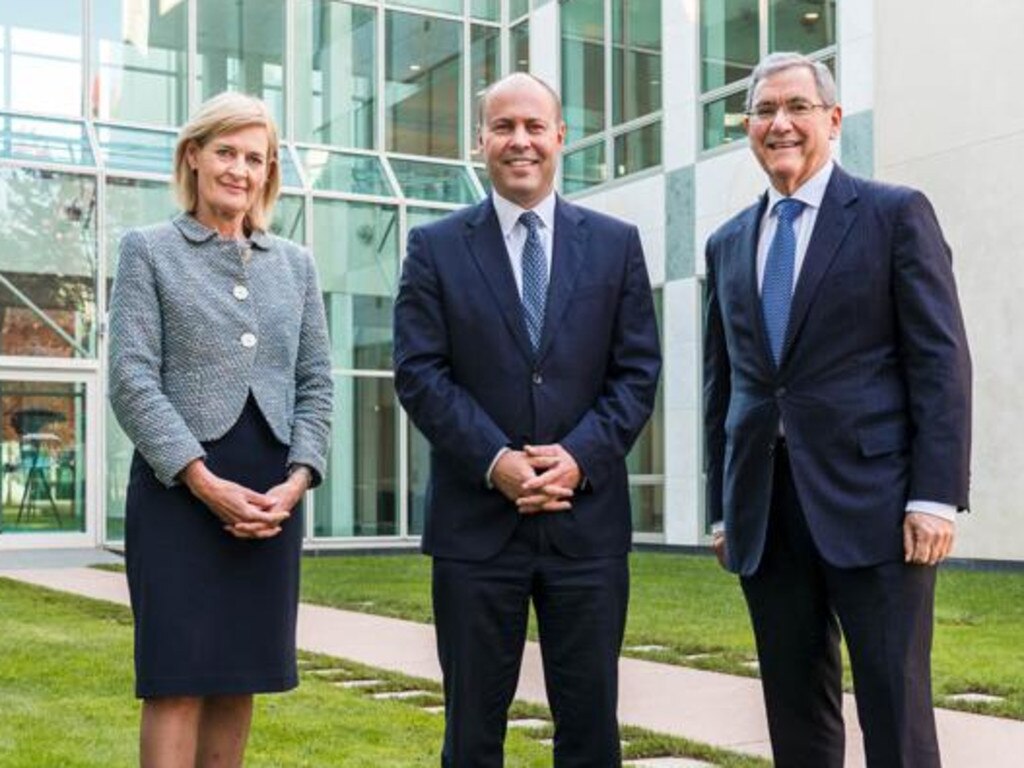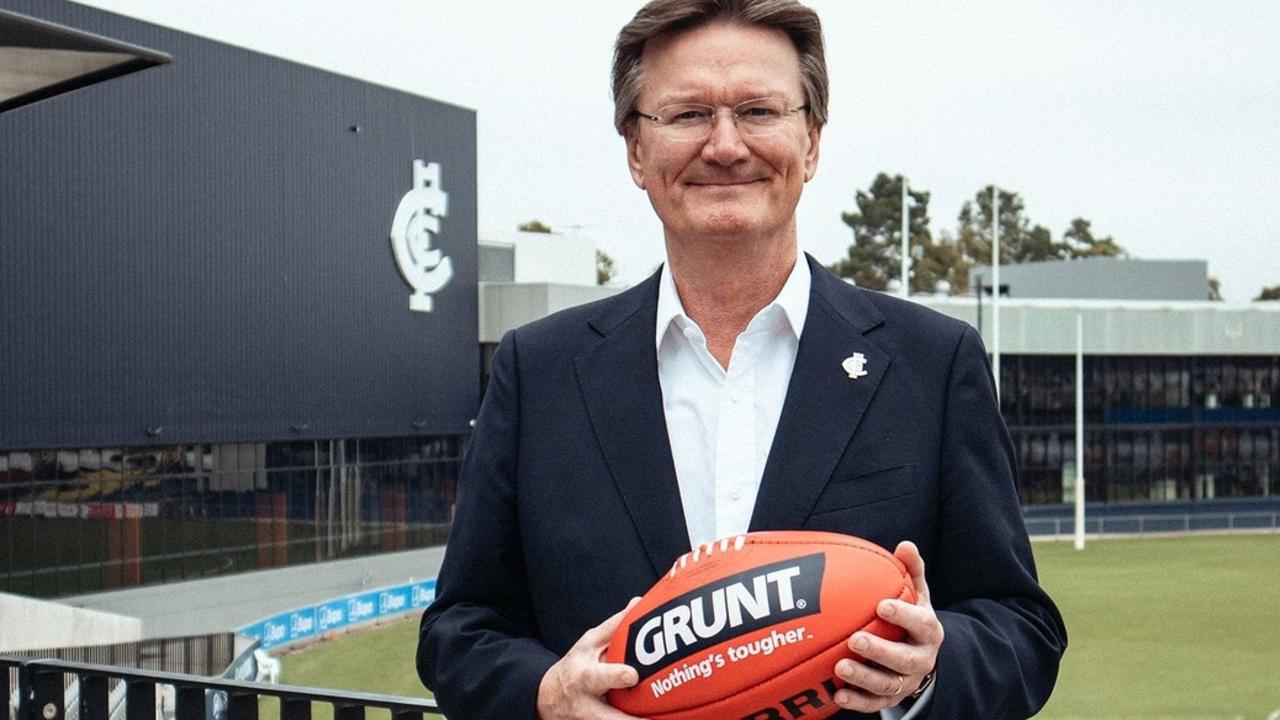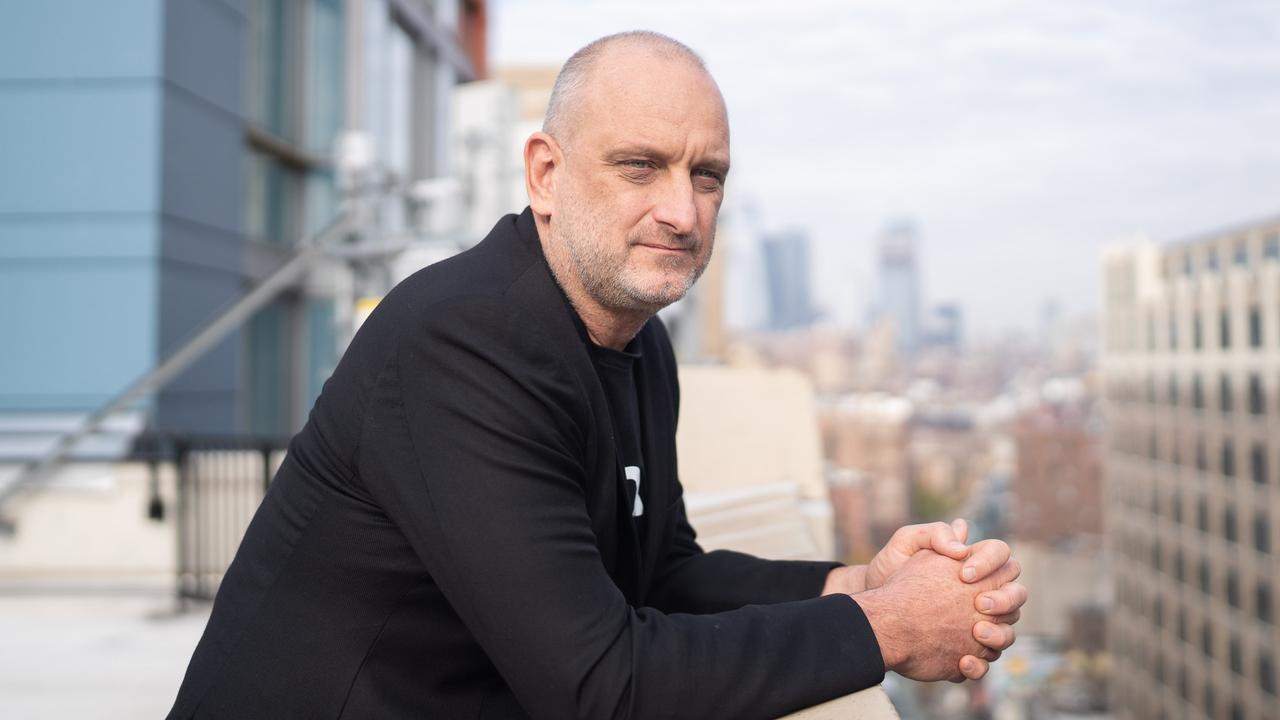Joe Longo’s way: new ASIC chairman vows to litigate
Three months into the job, top corporate cop Joe Longo is emerging as much more than just the safe pair of hands that Josh Frydenberg wanted at ASIC’s helm.
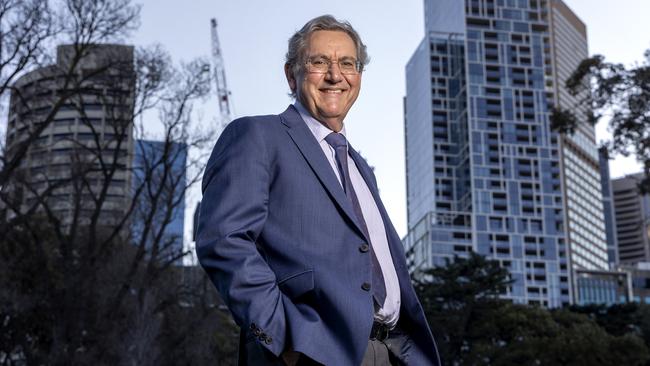
Three months into the job, the nation’s top corporate cop Joe Longo is emerging as much more than just the safe pair of hands that Josh Frydenberg wanted to steady the Australian Securities & Investments Commission.
Mr Longo has ditched the Kenneth Hayne royal commission-inspired “Why not litigate?” mantra. But does this make ASIC the Treasurer’s lapdog rather than a watchdog, as Labor assistant treasury spokesman Stephen Jones declared?
In his first major interview, Mr Longo makes it clear it might be unwise to jump to conclusions.
The shrinks are gone from the boardroom, litigation will be targeted but active, and enforceable undertakings will be back but tougher, Mr Longo told The Australian.
Regulation of cryptocurrency assets is on the way and Mr Longo wants a no nonsense relationship with the big banks, which since the royal commission have locked up ASIC resources.
“I’m not dropping litigation. You’re dealing with someone who has been doing this for over 30 years,” Mr Longo said of the decision to end “why not litigate?”
“It was a useful concept coming out of the royal commission, where it was thought that ASIC wasn’t litigating enough and it was doing deals and it simply wasn’t taking a more court-based approach to enforcing the law.
“That’s what commissioner Hayne found and I respect that. It doesn’t help me make choices about what to investigate, what action to take.
“To call it a discipline, to say why not litigate, it’s just not very helpful. Of course we are going to litigate.”
Australia’s new top corporate cop has been in the trenches for both sides in the game of white collar crime. The Italian-Australian – as he sees himself – grew up in Perth.
He finished law school in the 1980s when the west was wild but criminal and commercial law were quite separate.
“Those hard-headed criminal barristers had done a million criminal trials but none of them had ever opened up the Corporations Act, they had no idea of commercial law and directors duties,” Mr Longo said. As a commercial lawyer, he found himself cramming the criminal code.
At Parker & Parker in the early 1990s, he did some of Alan Bond’s defence work at a time when the forgetful entrepreneur was top of then ASIC chief Tony Hartnell’s hit list. “I knew Tony Hartnell very well. Most of us crossed swords in those days. I was acting for the people he was chasing,” he said.
More remarkable in 1996, Mr Longo moved over to ASIC as its chief enforcement director. In 1997, Bond went down for fraud and did four years behind bars. “We had some great wins in the 90s,” Mr Longo said.
“To this day, the case against Nomura, Justice (Ronald) Sackville’s decision in 1998 is still the leading market manipulation case in the common law.” Macquarie Bank executive director Simon Hannes also went down for insider trading.
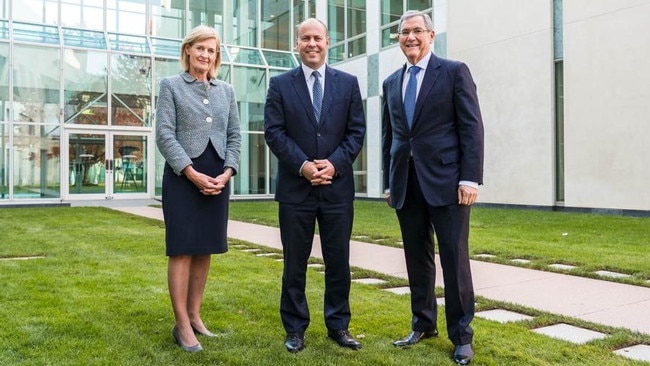
After enforcement, Mr Longo spent 17 years back on the side of business as general counsel at Deutsche Bank in Asia and the UK. But all the while he said he knew if he ever had the chance to run ASIC he would take it.
“The door opened and quite unexpectedly in regrettably very difficult circumstances for the people who were caught up in them, but it opened the door for me after I got back,” Mr Longo said.
Now he faces scepticism over the bark and bite of the watchdog and even its independence from government after Mr Frydenberg personally intervened to manage ASIC’s leadership crisis. “We’ve only just met. Do I really look like someone who is not going for think for himself?”
ASIC has found itself caught in politics before, most famously in its prosecution of the National Textiles case, also when Mr Longo was head of enforcement.
“Ah yes, was that the PM’s brother? I’ve still got that poster from the paper, it’s in some box somewhere and while we’re going back in the day, what about Paul Keating’s piggery? We had some great fun in those days,” he said.
On a more serious note, Mr Longo pointed to Mr Frydenberg’s own statement of expectations. “There is a whole paragraph addressed to independence, so the Treasurer himself has made it clear he wants us to act independently,” he said
Nevertheless, Mr Frydenberg’s statement requires the regulator to support Australia’s economic recovery and not be overly prescriptive in guidelines for business. So when ASIC’s corporate plan released just days later dropped any mention of “why not litigate”, eyebrows were raised.
“I want ASIC to have a reputation for being active, targeted, proportionate. We are in court every day of the week somewhere in the country,” Mr Longo said.
“In the process leading up to my appointment there is no question that enforcement was a critical expectation of the government. If we were to lose control of the narrative over enforcement then that really undermines confidence in the regulator as a whole.”
The Longo view is that ASIC cannot run every case, nor can it investigate everything. Action is intended to be high-impact.
Business can expect a return of enforceable undertakings that Mr Longo helped introduce in the 90s as a flexible and targeted stick on companies but which got a bad rap in the royal commission.
“This is going to sound a bit trite, but they need to be enforced. Occasionally we may need to sue somebody and say that a contempt of court is not to comply with EUs,” he said. ASIC is also looking at US-style court-appointed monitors that check on compliance.
Enforcement resources could also shift superannuation after the recent outing of poor performing funds that are now on notice from ASIC to send out mandatory letters to members on performance and not be misleading or deceptive.
What does worry the new chair are the scams appearing as amateur investors hunt for yield in a low interest rate environment. In April, ASIC secured a 20-year ban for Mayfair 101’s incorrigible director James Mawhinney from fundraising and promoting investment products.
“And he keeps getting back onto our radar,” Mr Longo said.
(Mr Mawhinney, the former Mayfair 101 director, in June launched an appeal against his ban on fundraising and promoting investment products.)
“What I want to say to the Australian people is just be cautious dealing with him, anything to do with him because we have obviously been watching very carefully.”

Last week ASIC commenced prosecution of Quintis chief Frank Wilson. The Sandalwood business turned out to be a black hole for investors.
“Mr Wilson, from Western Australia – he was a contemporary at the time, I have to say, I think we were at law school at the same time,” Mr Longo said.
Regrettably he said many scams involved people abusing relationships.
After an indisputably rocky year, Mr Longo said a big priority was ASIC itself, to build and enhance capability, infrastructure and effectiveness. “That may not be a very sexy story,” he said.
It has certainly been a sexy story in the last 12 months. After all the carnage at the regulator, is he comfortable with his commissioners as they stand now?
“Well they are all statutory appointees, I’m comfortable with all of them. There is only one answer to that question,” he said with a laugh. “After three months I think the commission is working in a very collegiate manner and I’m very happy with that.”
Mr Longo’s comments were endorsed by the deputy commissioner who missed out on the top job, Karen Chester. “I’m enjoying working with Joe as chair. He’s hit the ground running. ASIC is in good hands,” she said.
A new risk for ASIC to deal with is crypto. While Mr Longo stressed the regulator’s interest in encouraging innovation (an important expectation of the government) and the public interest in all things crypto, he saw a clear policy gap.
“If we are going to have the kind of market that we would all like to have it’s going to require regulation,” he said.
“It’s not fit for purpose at the moment.”
At the big end of town, Mr Longo has been on to the banks. The big four caused heartburn for former chair Greg Medcraft, who left the regulator appalled at cultural failure, and later James Shipton became deeply frustrated by the pace of remediation to bank customers.
In October, the banks face a new regime on breach reporting and Mr Longo has been frank. “I’d said to the banks, I know there is going to be many more breaches because you’ve told me. I expect you to speak up and say something has gone materially wrong in your bank. If something has gone wrong I don’t want to read about it in the newspapers and I certainly don’t want to have to be going through thousands of breach reports to find it,” he said.
Some banks are more on board than others, but Mr Longo in general found them more litigious than international banks in London and Hong Kong, which engage with the regulator when something goes wrong. The result is that penalties are lower and the process faster.
“Australia is still on a journey. We are litigious, and we value complexity. You know, this thing,” Mr Longo said pulling up his heavily tabbed tome, the Corporations Act. “You need to simplify when it comes to regulation.”
Top of mind is what to do with ASX: a world-class market operator but now seriously challenged with technology rollout. How did it remain accountable and actually deliver on what is required for the economy after unacceptable outage failures?
Regulation of the self-listed stock exchange is quite nuanced, he said. “The Treasurer has a role, we have a role, the Reserve Bank has a role, so it is a curly question but it is core business for me.
“The regulatory arrangements are going to tighten. The level of accountability we expect is going to increase. They are absolutely critical financial and market infrastructure.”
The in-tray for the new chair is piling up. Mr Longo said he was frustrated that lockdown had prevented him from being able to get out into the market, meet people, explain what ASIC did and to be accountable for it.
As to the fate of the corporate shrinks that Mr Shipton brought into the boardrooms across Australia, Mr Longo shakes his head.
“I’ve had a lot of experience in boardrooms. Obviously shrinks in the boardroom is an inherently interesting thing to talk about. It’s just not a good idea,” he said.
Mr Longo has had regulators in the boardroom, however. For his sins he says he was made supervisor of Deutsche Bank’s wholly owned subsidiary in China, travelling there 15 times a year and answerable to the ever present China Securities Regulatory Commission and China Banking Regulatory Commission.
“Once a year we have this half-day excruciating meeting with the regulator where they would force me to rate, rank and assess each director according to a scorecard. So that’s regulation at the pointy end I can tell you.”

